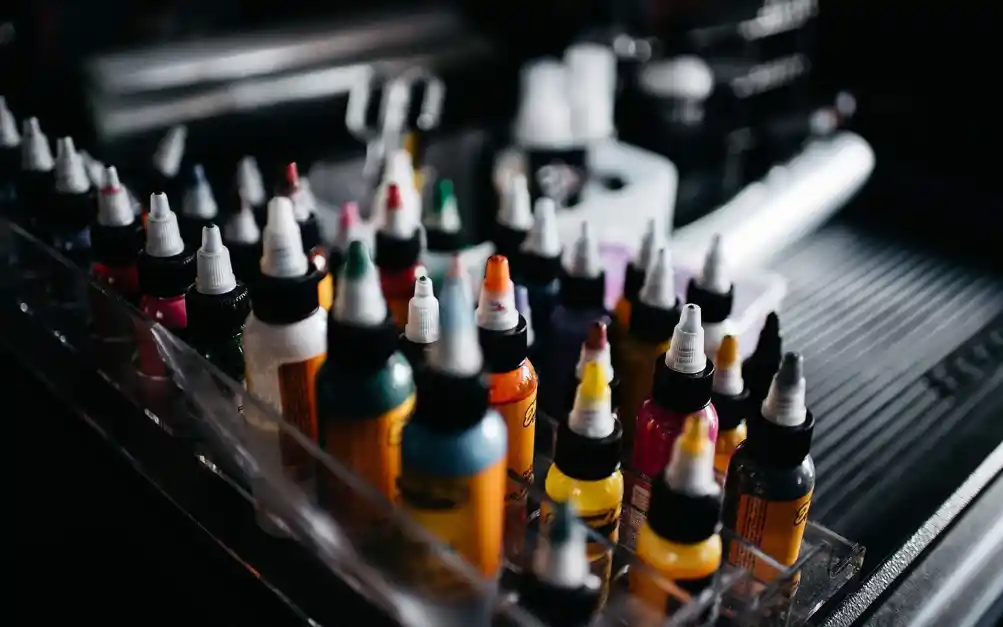As tattoos continue to grow in popularity, so does the demand for ethical and safe products. Among them, vegan tattoo ink has gained significant attention from both tattoo artists and conscious consumers. But what exactly makes tattoo ink vegan, and why does it matter? Let’s dive into the details.
What is Vegan Tattoo Ink?
Vegan tattoo ink means that the ink contains no animal-derived ingredients and has not been tested on animals. Unlike traditional tattoo inks that may include bone char, gelatin, shellac, or glycerin derived from animal fat, vegan inks use plant-based or synthetic alternatives.
Vegan certification contributes to animal welfare and environmental sustainability, and it’s also a safer choice for individuals with allergies or sensitivities to animal ingredients.
Vegan Tattoo Ink vs. Conventional Tattoo Ink
The key difference lies in the ingredients and manufacturing process:
Conventional tattoo ink often contains animal-derived components.
Vegan tattoo ink, on the other hand, is formulated with plant-based pigments and binders, making it cruelty-free.
Vegan inks are widely believed to be gentler on the skin, with lower risks of allergic reactions. Many artists and clients report that vegan tattoo inks provide more consistent color and longer-lasting results, making them not only a conscious choice but also a modern one.
Vegan Certification by Country
As the demand for vegan products rises globally, countries have developed distinct vegan certification systems. Understanding these is essential for manufacturers and exporters.
South Korea
Interest in vegan-certified products is rapidly growing in Korea. Leading the charge is the Korea Agency of Vegan Certification and Services (KAVCS), which rigorously evaluates raw materials and manufacturing processes to issue vegan certification.
Internationally, BeVeg also operates within Korea, offering certification services to help Korean products enter the U.S. and other global markets. BeVeg is the only vegan certification body accredited under ISO 17065 and 17067, ensuring products contain no animal ingredients and are free from animal testing.
United States
In the U.S., the Certified Vegan logo, managed by the Vegan Awareness Foundation, is widely recognized. This label confirms that a product contains no animal products and is not tested on animals. It is available to companies based in the U.S., Canada, Australia, New Zealand, and U.S. territories.
United Kingdom and Europe
The Vegan Society in the UK introduced the Vegan Trademark in 1990, now found on over 70,000 products worldwide, including food, beverages, cosmetics, and clothing.
Across Europe, the European Vegetarian Union (EVU) issues the V-Label, helping consumers distinguish between vegan and vegetarian products. This label is known for building trust and supporting businesses entering the competitive vegan market.
India
India’s Food Safety and Standards Authority (FSSAI) proposed new regulations in March 2025 regarding the import of vegan foods. Under this regulation, all imported vegan products must include a certification issued by a recognized authority in the exporting country.
The Future of Vegan Tattoo Ink
With rising consumer awareness, vegan certification is no longer a niche—it’s becoming a standard. Tattoo artists and clients alike are looking for safer, more ethical options. Vegan tattoo ink offers not only peace of mind but also performance, making it a win-win for both people and the planet.
If you’re a tattoo enthusiast or a business looking to enter the international vegan market, understanding and obtaining proper vegan certification is key to standing out and building trust.



